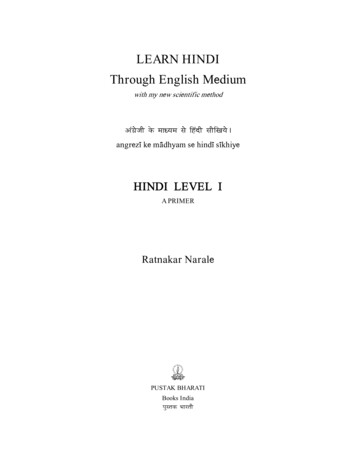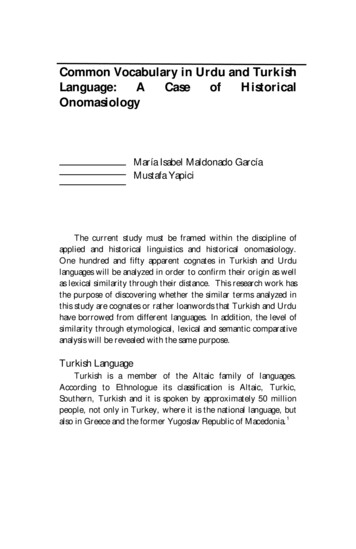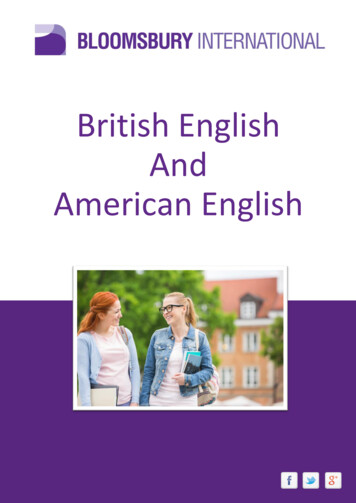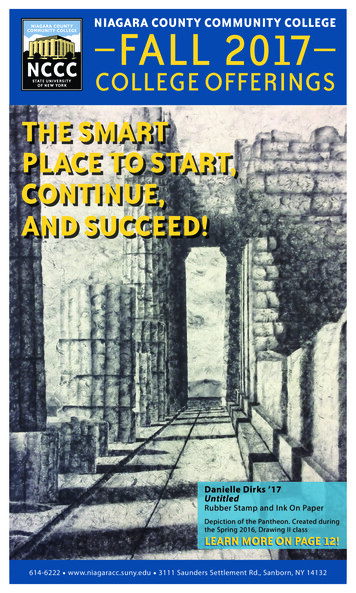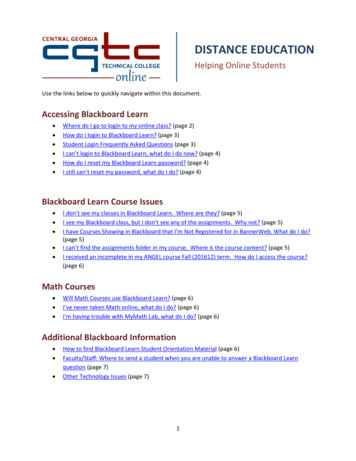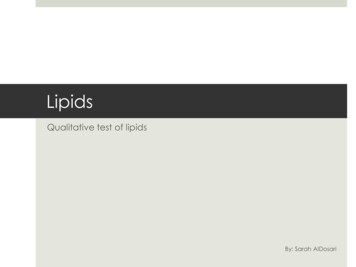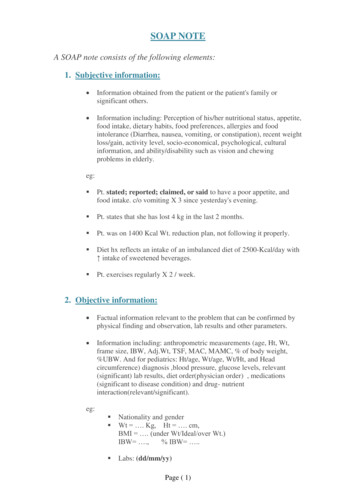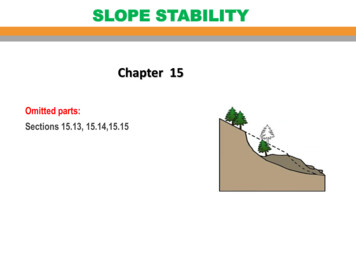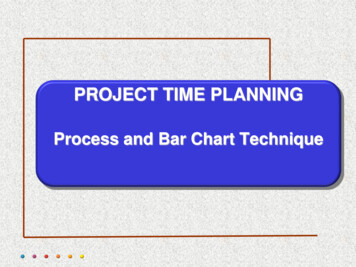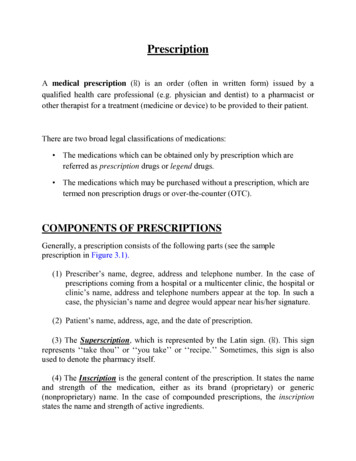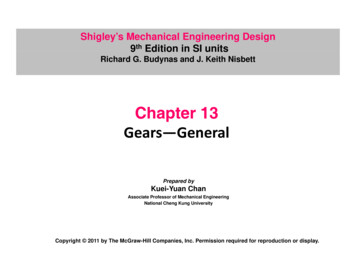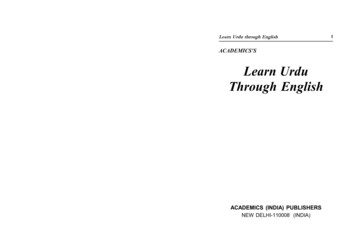
Transcription
Learn Urdu through EnglishACADEMICS'SLearn UrduThrough EnglishACADEMICS (INDIA) PUBLISHERSNEW DELHI-110008 (INDIA)1
2Learn Urdu through EnglishLearn Urdu through English3Published byACADEMICS (INDIA) PUBLISHERS508, Rattan Jyoti Building18-Rajendra Palace,New Delhi-110008 (INDIA)Tel. : 25742171, 25812181Fax: 91-11-25722671E-mail: angelaip@del3.vsnl.net.inOUR USA OFFICE230 Fifth Avenue, Suite 615New York, NY 10001 PUBLISHERSAcademic books are protected by international copyight lawsAll rights are reserved. The copyright of all materials in thisbook except where otherwise stated, remains the property ofthe publisher. No part of this publication may be reproducedstored in a retrieval system, or transmitted, in any form or byany means for whatever purpose, without the writtenpermission of Academic (India) PublisnersSecond Edition 2015Price Rs. 60.00Printed at: Star Offset Printers, New DelhiAbout the BookThis book in your hand is an easy way to learn Urduthrough English. A native speaker of English language ispresumably aware of at least the basics of Englishgrammar like sentence structure, grammatical function ofEnglish words, and very importantly the sound system. Byand large, same ingredients or components of leaning alanguage like Urdu are required. Put very simply, a fewtechn ical things are distinctively remarkable todifferentiate a particular language like Urdu from otherlanguages of the world where English is not an exception.Primarily, language acquisition marks the following whichare absolutely.unavoidable while learning or thinking ofany language of the world:1.Script (Orthography)2.Grammatical Function of Words (Syntax)3.Vocabulary (Morpho-phonemic)4.Sound System (Phonology)5.Production of Sounds (Speech Mechanism/Phonetics or the Physical Nature of Sounds)
4Learn Urdu through EnglishEfforts have been made to incorporate these highlytechnical issues very precisely while learning Urduthrough English. Selection of Urdu vocabulary has beentaken from daily affairs; phonetically transliterated Urduwords are very close to the English sounds and acomparative approach has been made to the understanding of Urdu grammar through English grammar.Nevertheless, grammatical approach to the learning of alanguage througt another language remains the same. Anoun word of any language works as a noun in asentence. Be it any language of the world including Urdu.Having a short discussion on the learning of Urdu, Iam confident that readers will enjoy learning a languagelike Urdu through English. Any comments, suggestions orcriticism from the readers will be of great help for theimprovement of the next edition of the book.Dr. Madani Mohiuddin AhmadLearn Urdu through English5ContentsAbout the BookSounds of English - Urdu AlphabetsNouns, Singular and Plural, English - UrduSubject Pronouns : English - UrduAction Present Verbs : English - UrduAction Past Verbs : English - UrduAction Fture Verbs : English - UrduAdverbs : English - UrduPrepositions : English - UrduGender : Nouns and Pronouns : English - UrduMost Common Vocabulary : English - UrduSentences of QuestionsKey to PronunciationGrammatical ExplanationsNumbersWeights and MeasuresEVERYDAY LIFEGreetingsIntroductionsPersonal ParticularsShort Questions and AnswersPolite PhrasesLearning the LanguageOrdersPublic NoticesTime and WeatherDays of the Week000000000000000000000000
6Months of the YearSeasonsIn TownPublic BuildingsTRAVELLINGAt a Travel AgencyAt the CustomsBy PlaneBy TrainBy CarRenting a CarBy Car (Services and Breakdowns)By ShipMeans of Transport in TownHOTELThe ArrivalYour StayThe BreakfastYour DepartureBars and RestaurantRestaurantThe TableCooking TermsCondimentsEggsMeatFish and SeafoodVegetablesFruits and DessertsDrinks7Learn Urdu through EnglishSHOPPINGAt the Bookshop-NewsagentAt the Chemists's ShopAt the Department StoresClothes and AccessoriesMaterialsColoursShoe shopPhotographic ShopOptician's ShopFlorist's ShopTobacconist's ShopHairdresser's ShopLEISUREMuseums and other Places of InterestEntertainmentConcertsTheatreCinemaOn the Beach/At the Swimming PoolCampingSportsUSEFUL SERVICESBankPost OfficeTelephoneHealthDoctor's ClinicDentist's Clinic
89Learn Urdu Through EnglishPhonentically TransleteratedSounds of Urdu AlphabetsEasy way to PronunciationUrduAlphabetEnglishSoundVery important to note that one can learn theproper pronunciation of Urdu by imitating soundsproduced by a speaker of Urdu or by listening andrepeating Urdu sounds from electronic sources. Carefullistening will help improve the understanding ofacoustic nature of different sounds of Urdu. Following isa si m p l ifi ed w ay a n d g u i d e to p ro n ou n c e t hetransliterated Urdu phones:- a(n) apple b(n) book p(adj/n) poort(n) tea ttrain th(v) think j(n) jam ch(n) Church h(n) house khd (n) deer
1011 d(n) donkey dh r(n) red r z(n) zink zh s(n) sonsh(n) sheep s(n) son z(a) zebra t z a gh f(n) fool a k(n) kiteg(v) gol(n) lifem(n) man n(adj) nice v, o or û(adj) voice h(n) hall h(n) home vowel y, i(n) yalk ai or evowel
1213Numbers / adaad /Noun : Singular and Plural English NounUrdu Noun 1oneaik Nounsism2twodo my carmery kaar 3threeteen green carsabz kaar 4fourchar three carsteen kaar 5fivepanch car garagekaar gueyraj 6sixcheh outside the carkaar ke bahar 7sevensaat 8eightaath 9nineno my bookmeri kitab 10tendas my booksmeri kitabe'n Urdu PluralEnglish PluralPluralmy daughterour daughtersjamameri betihamari betiya'n
1415mujhe sardi lagiI'm coldhaihame'n sardi lagiwe're cold They Mehai main/us ke murgh their chickenun ke murgh UrduPronounThatkeh Theseye Thosewoh Imain Youtau, tum, singular & pluralbothYoutu, tum, aap singular, manHimun ke singular, womanHeron ki Plural, for men & singularhumwomen Object PronounaapWe yehZameerwo (aurat)womenThisPronounsSheSingular, man orIshaaratiIsm-e-wo (mard)sheDemonstrativeSubjectHePlural, he andmujheyhis chickenEnglishPronounwey (jama)UshamaraSingular andplural, male orfemaleSingular, maleSingular, femalePlural, male andfemale
16ThemMyYour17un keplural, men orwomen, namesteyre,aap kaHisun kaHerun kiOurhamaraun keMinemeyraYoursteyre,tumhara,aap kaHisun kaHersunkiOurshamarey plural or singularmen or women,namesunkeyTheirsunkiPossessive PronounsSingular, man ormayra womantumhara,Their Active Present VerbsPresentVerbsJaari ZamanaSingular, maleI speak.main bolta hoonSingular, femaleI write.main likhta hoonI drive.main chalata hoonI love.main mohabbadkarta hoonI give.main daita hoonI smile.main muskuratahoonI take.main laita hoonPlural, male andfemaleplural male,female names orpersonssingular malesingular or pluralmales or femalessingular, femaleplural, males orfemalesplural male,namesplural female,male namesHe speaks.wo bolta haiHe writes.wo likhta haiHe drives.wo chalata haiHe loves.wo mohabbatkarta hai
1819We speak.hum boltey hainWe write.hum likhtey hainWe drive.hum chalate hainWe love.hum muhabbatkarte hain We give.hum daite hainWe smile.We take.He gives.wo daita haiHe smiles.wo muskurata haiHe takes.wo laita haiI drove.main ne chalayaI loved.main nemohabbat kiI gave.main ne diyaI smiled.I took.main muskurayamain ne liyaHe spoke.woh bolaHe wrote.us ne likha He drove.us ne chalayahum muskuratehain He loved.us ne mohabbat kihum laite hain He gave.us ne diyaHe smiled.Action past VerbsEnglish VerbsUrdu VerbsVerbsfa'eelPastmaaziI spoke.main boolaI wrote.main ne likha wo muskurayaHe took.us ne liyaWe spoke.hum boleyWe wrote.hum ne likhaWe drove.hum ne chalayaWe loved.hum nemohabbat ki
2021We gave.hum ne diyaWe smiled.We took.hum muskurayehum ne liya Action Future VerbsFuture VerbsFaail MustaqbilI will speak.main boolungaI will write.main likhungaI will drive.main chalaungaI will love.main mohabbatkaroongaI will give.main doongaI will smile.mainmuskuraoungaI will take.main loongaHe will speak.woh bolegaHe will write.woh likhegaHe will drive.woh chalayegaHe will love.woh mohabbatkarega He will give.woh de gaHe will smile.woh muskurayegaHe will take.woh ley gaWe will speak.hum bolengeyWe will write.hum likhengeyWe will drive.hum chaleyengeWe will love.hum mohabbatkarengeyWe will give.hum dengey We will smile.hummuskurayengey We will take.hum lengey AdverbsEnglish Urdu Adverbsmuta'alliq afaal I read a book sometimesmain kabhi kabhar aik kitaab padhta hoon I will never smokemain kabhi bhi cigrette nahi piyoonga
2223 Are you alone?kya tum akeley ho? English PrepositionsPrepositionsInside thehouseOutside thecareHuroof-e-Jaarmakaan ke ander English PrepositionsAboutse mutallalliqAbovebalaaiAcrosske paarAfterke baadAgainstbar-aksAmongmain seke ird girdmakaan ke bahar AroundWith memerey saathAsjoonhi, taake,jaisa ke,Without meUnder thetableAftertomorrowBeforesunsetun ke baghairAtmain, per, se, ketarafmez ke neechey Beforeke saamney, pahlekal ke baad Behindaqbi, peecheyBelowke neecheyBeneathke neecheyBut I'm busyghuroob aaftaab sepahleylekin main masroofhoon BesideBetweenke alawake darmiyaan
24Beyond25doosri taraf, us paarButmagarl lekinBypaas, qareeb, zariyese, baqadarDespiteke bawajoodDownneecheyDuringke dooraanExceptke alawaForFrombabat, barayeseyInmainInsideanderIntoke anderNearke qareebNextaglaaOfke or kaaOnulat OppositeOutOutsideOverulatbaharbairooni hisseykhatamPerfeePlusmasaawiRoundgoolSincejab seThanba-muqablaThroughmein seTillab tak, tab takTokoTowardki jaanibUnderke neecheyUnlikeke bar-aksUntilUpjab takke ooper
2627Viake zariyeWithke saathWithinke ander, dakhilWithoutke baghairTwo wordsdo alfaazAccording toke mutabiqBecause ofki wajah seClose toke qareebDue toki wajah seExcept forke alawa, ko chhodkarFar fromse doorInside ofke ander, daakhliNear toke bajayeNext toke baadOutside ofke baharPrior tose pahle Prepositional Phraseof Three WorldsAs far asjahan takAs well asjaisa keIn addition toke alawaIn front ofke samneyIn spite ofke bawajoodOn behalf ofke badleyOn top ofke ooper Gender : (Male/Female)Urdu grammatical gender of nouns is oneof two: a noun may be masculine or it may befeminine, and there is no neutral option.Moreover, masculine is the defautl grammatical gender and a word does not have to haveanything special in order to reflect this.Femininity, on the other hand, is not defaultand a noun would have to have somethingspecial to reflect this gender.
2829Example:Brother (m)Ahmad (male) writes (male) Sister (f)behan Uncle (m)chachaAunt (f)khala,ahmad likhta haiLubna (female) writes (female)lubna likhti haiphoophi,chachiGender : Male (m) and Female (f)EnglishFeminineUrdumoan-nasHe is happy (m)wo khush haiShe is happy (f)He is American(m)She is American(f)wo khush haiwo americkihaiwo americkihaiMan (m)aadmiWoman (m)auratFather (f)walidMother (f)maa / walidahbhai Bull (m)bailCow (f)gayeBow (m)ladkaGirl (f)ladki Most Common VocabularyEnglishVocabularyObjects BathroomBedUrduVocabularyashyaaghusal khanabistarBedroomkhawaabgaahCeilingandrooni chhat
esslibaasFloorfarashFork (for eating)kaanta, (khane kelye)FurniturefarnitureGlasssheeshaHatchhajje daar chi khaanaKnifechhuriLamplaltain Letterkhat, mrahmoose, rui kaghaleecha
Toiletletreen, baitulkhalaToothbrushtooth brushToothpastetooth pasteToweltooliyaUmbrellachhatriUnderwearzair jaamaWalldeewaarWalletbatwaWindowkhirki Telephonetelephone Urdu adjectives like English modifier thequality of nouns or pronouns. In case of Urdu,the sound pattern of adjectives usually changeswhile English doesn't.Example:That girl is beautiful wo ladki khoobsurat hai The boy is goodwo ladka achha hai adjective'good' (in urdu is pronounced as 'achhi' In case of female noun -e-sifat A green treeaik hara darakht A tall buildingaik oonchi imarat
3435A very old manThe old redhouseA very nicefriendaik umar raseedaaadmipuraana lal gharaik ziyadapasandeeda dostEnglishQuestions UrduQuestionssawalaat How?kaisa? What?kya? Who?koon? Why?kyoon? kub? QuestionsWhere?Sentences of QuestionsEnglishQuestionsUrduQuestionsWhere is he?woh kahan hai?What is t
words are very close to the English sounds and a comparative approach has been made to the under-standing of Urdu grammar through English grammar. Nevertheless, grammatical approach to the learning of a language througt another language remains the same. A noun word of any language works as a noun in a sentence. Be it any language of the world including Urdu.
